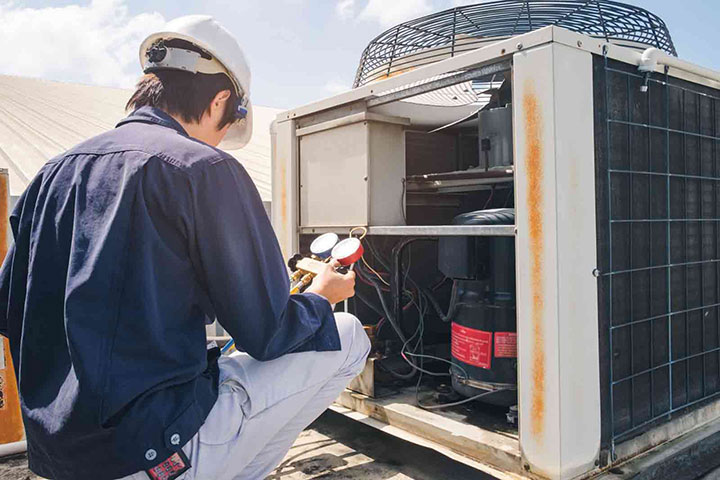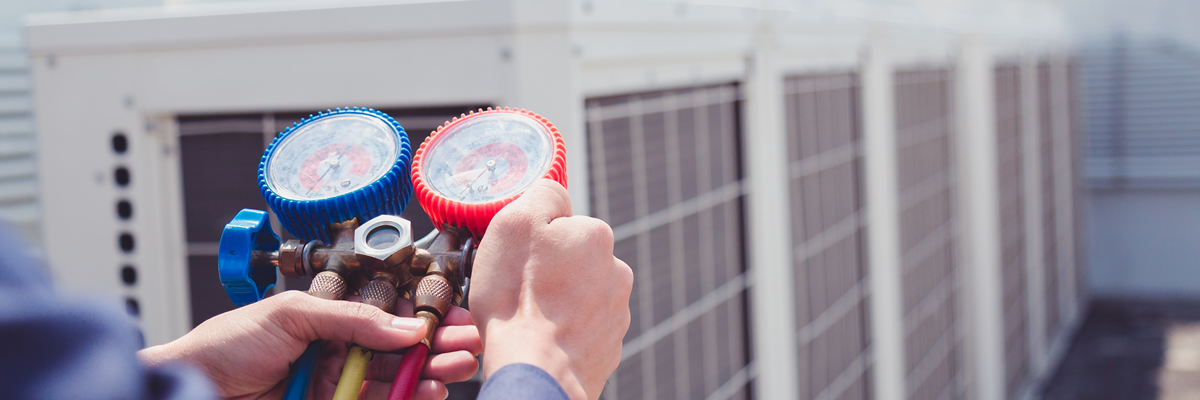Warning Signs It's Time for a furnace replacement
Warning Signs It's Time for a furnace replacement
Blog Article
Choosing In Between a Heatpump and Furnace: Key Considerations for Your Cooling And Heating Demands
When examining heating alternatives for cooling and heating requires, the decision between a warmth pump and a heating system can be intricate. Each system supplies unique advantages customized to details environments and power efficiency objectives. Recognizing these differences is important for making an informed option. Key aspects such as setup costs and ecological impact further make complex the selection procedure. Which choice genuinely aligns with one's convenience and sustainability choices? The following areas will certainly check out these considerations carefully.
Recognizing Warmth Pumps: Just How They Function and Their Benefits
While several homeowners consider different home heating choices, understanding exactly how heatpump function and their advantages can greatly affect their choice. Warm pumps run by transferring warmth rather than creating it. In the winter season, they remove warm from the outside air or ground and transfer it inside your home, while in the summertime, they reverse this process, cooling the home by removing heat outside. This twin capability makes them functional for year-round climate control.One of the primary advantages of heat pumps is their power efficiency. They utilize substantially much less electrical energy contrasted to traditional heater, potentially resulting in lower utility bills (ductless mini splits). Furthermore, heatpump have a smaller sized carbon impact, making them an eco-friendly choice. They also need much less upkeep than standard systems, adding to long-term cost savings. In general, comprehending the mechanics and benefits of heatpump can assist house owners make educated decisions regarding their heating and cooling down requirements
Exploring Furnaces: Types, Procedure, and Benefits
Heating systems come in different kinds, including gas, electrical, and oil models, each with distinctive operational devices. Understanding these distinctions is crucial, as they affect efficiency and heating performance. In addition, heaters use numerous benefits, such as consistent warm result and integrity in cooler environments.
Types of Furnaces
Heating unit can vary significantly in style and operation, with furnaces being a popular option among home owners. There are a number of kinds of heaters, each utilizing different fuel resources and innovations. Gas heating systems are common, leveraging natural gas to produce warmth efficiently. Electric heaters, on the other hand, make use of electrical resistance to generate heat, commonly favored for their simple installation. Oil heaters, while less usual, are effective in areas with minimal gas access (heat pump service). In addition, condensing furnaces optimize power performance by capturing and reusing exhaust gases. Each kind runs with a system of heat exchangers and ductwork to distribute warm air throughout a home. Comprehending the distinctions in between these heating system kinds is vital for educated HVAC decisions
Benefits of Heating systems
For homeowners seeking reputable heat throughout cool months, the advantages of heating systems are considerable. Heating systems supply consistent home heating, guaranteeing even temperature levels throughout the home. They are particularly reliable in extreme chilly, commonly surpassing warm pumps in icy problems. Various kinds, consisting of gas, electrical, and oil heating systems, supply flexibility to meet varied demands and preferences.Furnaces additionally often tend to have reduced initial setup costs contrasted to warm pumps, making them a much more accessible alternative for many. Their robust layout adds to a much longer life expectancy, with many devices lasting over 15 years with proper upkeep. In addition, modern-day heaters are typically furnished with advanced technology for improved performance, which can bring about reduced energy bills. Overall, furnaces remain a reputable option for efficient home heating.

Energy Efficiency: Contrasting Heat Pumps and Furnaces
When comparing power efficiency between heatpump and furnaces, the Seasonal Energy Efficiency Ratio (SEER) plays an essential duty in figuring out efficiency. Furthermore, a functional expense analysis reveals the lasting financial implications of each system. Recognizing these factors can lead property owners in making notified decisions concerning their heating solutions.
Seasonal Energy Performance Proportion
Energy effectiveness plays an essential role in the decision-making procedure in between warmth pumps and furnaces, specifically when thinking about the Seasonal Power Performance Ratio (SEER) This statistics procedures the cooling performance of heatpump over an entire cooling season, giving a standard method to evaluate performance. Greater SEER scores suggest better power effectiveness, equating to reduced energy intake and lowered energy costs. On the other hand, heaters are generally evaluated using the Annual Fuel Usage Effectiveness (AFUE) score, which shows home heating effectiveness. When comparing these two systems, property owners must focus on SEER rankings for heatpump, as they straight influence general energy financial savings and environmental sustainability. An extensive understanding of SEER can significantly affect the long-lasting complete satisfaction and cost-effectiveness of the chosen HVAC remedy.
Functional Cost Evaluation
Comprehending the functional expenses associated with warmth pumps and heaters is important for property owners assessing their alternatives. Heatpump usually offer higher power efficiency, transforming electric energy into heat with marginal waste. This results in reduced month-to-month energy bills, particularly in modest environments. Conversely, typical heaters, particularly gas versions, may have reduced upfront expenses but can incur higher operational expenses over time as a result of fuel costs and effectiveness ratings.Moreover, warmth pumps can operate as both heating and cooling systems, possibly reducing the demand for different cooling and heating units. While preliminary financial investments for heat pumps might be greater, their long-lasting savings in energy effectiveness can make them a much more affordable option for several households. Cautious analysis of neighborhood energy prices is important to figure out the very best option.
Installment Expenses: What to Anticipate for each and every Heating Unit
Installation prices for heating unit can vary significantly between heatpump and furnaces, influencing house owners' decisions. Heatpump generally have greater upfront installment expenses, typically ranging from $3,500 to $8,000, depending on the device dimension and intricacy of installation. This includes the exterior system, indoor handling system, and needed ductwork adjustments. On the other hand, heaters tend to have lower initial costs, balancing in between $2,500 and $6,000, which can be appealing for budget-conscious home owners. Setup expenditures can boost if extensive ductwork is required.Moreover, the option of fuel kind for heating systems-- natural gas, lp, or electrical-- can likewise influence setup costs. While warmth pumps provide power effectiveness, their initial investment may deter some purchasers. Eventually, evaluating installation expenses together with lasting financial savings and efficiency will aid house owners in making notified decisions concerning their heating systems.
Climate Factors To Consider: Which System Executes Much Better in Your Area
Exactly how do climate conditions influence the efficiency of furnace? The efficiency of heat pumps and heating systems can vary considerably depending on the local environment. In modest climates, heatpump excel by successfully transferring heat from the outside air, making them an energy-saving alternative. Nevertheless, their performance decreases in extremely chilly temperature levels, where they may have a hard time to remove enough heat. On the other hand, heaters, especially gas designs, provide regular and reputable warmth despite outside conditions, making them more effective in colder regions.In locations that experience milder winter seasons, heat pumps can operate successfully year-round, offering both home heating and cooling. On the other hand, areas with extreme winters months often take advantage of the effectiveness of heaters. Eventually, understanding the regional climate is necessary when determining between a warmth pump and a heater, as it directly impacts their functional efficiency and total efficiency.
Upkeep Demands: Long-Term Take Care Of Warmth Pumps vs. Furnaces
While both heatpump and furnaces require regular maintenance to guarantee peak efficiency, their details needs and care routines vary substantially. Furnaces Your Domain Name commonly require much less regular focus, with yearly inspections being enough to look for gas leakages, clean filters, and assess total performance. Their less complex style typically permits uncomplicated repairs.In comparison, heat pumps require biannual maintenance as a result of their twin role in heating & cooling. This includes cleansing coils, inspecting cooling agent levels, and making sure that both the interior and outside devices work at their ideal. In addition, warmth pump upkeep usually includes more intricate parts, making expert servicing essential.Neglecting maintenance can cause lessened effectiveness and raised energy costs for both systems. Ultimately, homeowners ought to think about these lasting care demands when selecting in between a heatpump and a heater, as aggressive upkeep can expand the life-span and performance of either system substantially.
Environmental Effect: Choosing a Lasting Home Heating Choice
The ecological influence of heating systems is a vital examination for home owners looking for lasting alternatives. Warmth pumps are generally more energy-efficient than standard heating systems, as they move warm instead of generate it, substantially minimizing carbon emissions. By utilizing renewable energy resources, such as air-source or geothermal heat pumps, property owners can even more minimize their ecological footprint.On the various other hand, gas heaters here are the findings produce greenhouse gases and add to air pollution, though they commonly supply greater warmth result. Advancements in modern technology have actually led to the development of high-efficiency furnaces that decrease emissions.Ultimately, choosing a heating system involves evaluating performance versus environmental effect. Home owners are motivated to mirror on local energy sources and incentives for renewable systems, making sure a choice that lines up with both individual comfort and ecological obligation. The decision influences not only prompt convenience yet also long-lasting sustainability and environmental health.
Regularly Asked Inquiries
How Much Time Do Heat Pumps and Furnaces Usually Last?
The lifespan of warmth pumps typically ranges from 15 to two decades, while heaters can last between 15 to three decades. Normal maintenance significantly impacts their longevity and efficiency in providing heating solutions.
Can I Use a Warm Pump in Incredibly Cold Climates?
Heat pumps can run in exceptionally chilly climates, but their efficiency lessens as temperatures drop. In such conditions, supplementary heating resources might be essential to maintain comfortable indoor temperatures and guarantee peak performance.

What Is the Noise Level of Warmth Pumps Versus Furnaces?
The noise degrees of heat pumps and heaters differ significantly. Typically, heatpump operate more silently than standard furnaces, making them more effective for those conscious seem, while furnaces may create louder operational noises during heating cycles.
Are Warmth Pumps Suitable for Both Cooling And Heating?
Warm pumps are without a doubt ideal for both cooling and heating (ductless mini splits). They operate by webpage transferring heat, offering reliable temperature control year-round, making them a versatile option for house owners seeking an all-in-one cooling and heating remedy
What Size Heater Do I Need for My Home?
Establishing the proper dimension heater for a home requires examining factors such as square video, insulation top quality, local climate, and the home's design. Consulting an expert can guarantee an exact assessment and ideal convenience. Warmth pumps usually provide higher power efficiency, transforming electric power into heat with marginal waste. In modest climates, heat pumps stand out by effectively moving warm from the outdoors air, making them an energy-saving option. On the other hand, furnaces, specifically gas models, give regular and dependable warm regardless of outdoor conditions, making them more effective in cooler regions.In locations that experience milder winters, warmth pumps can run effectively year-round, giving both heating and air conditioning. Warmth pumps are typically much more energy-efficient than standard heaters, as they transfer warm rather than generate it, significantly reducing carbon exhausts. By utilizing eco-friendly power resources, such as geothermal or air-source warm pumps, property owners can even more reduce their environmental footprint.On the various other hand, natural gas heating systems emit greenhouse gases and add to air pollution, though they commonly give higher heat outcome.
Report this page